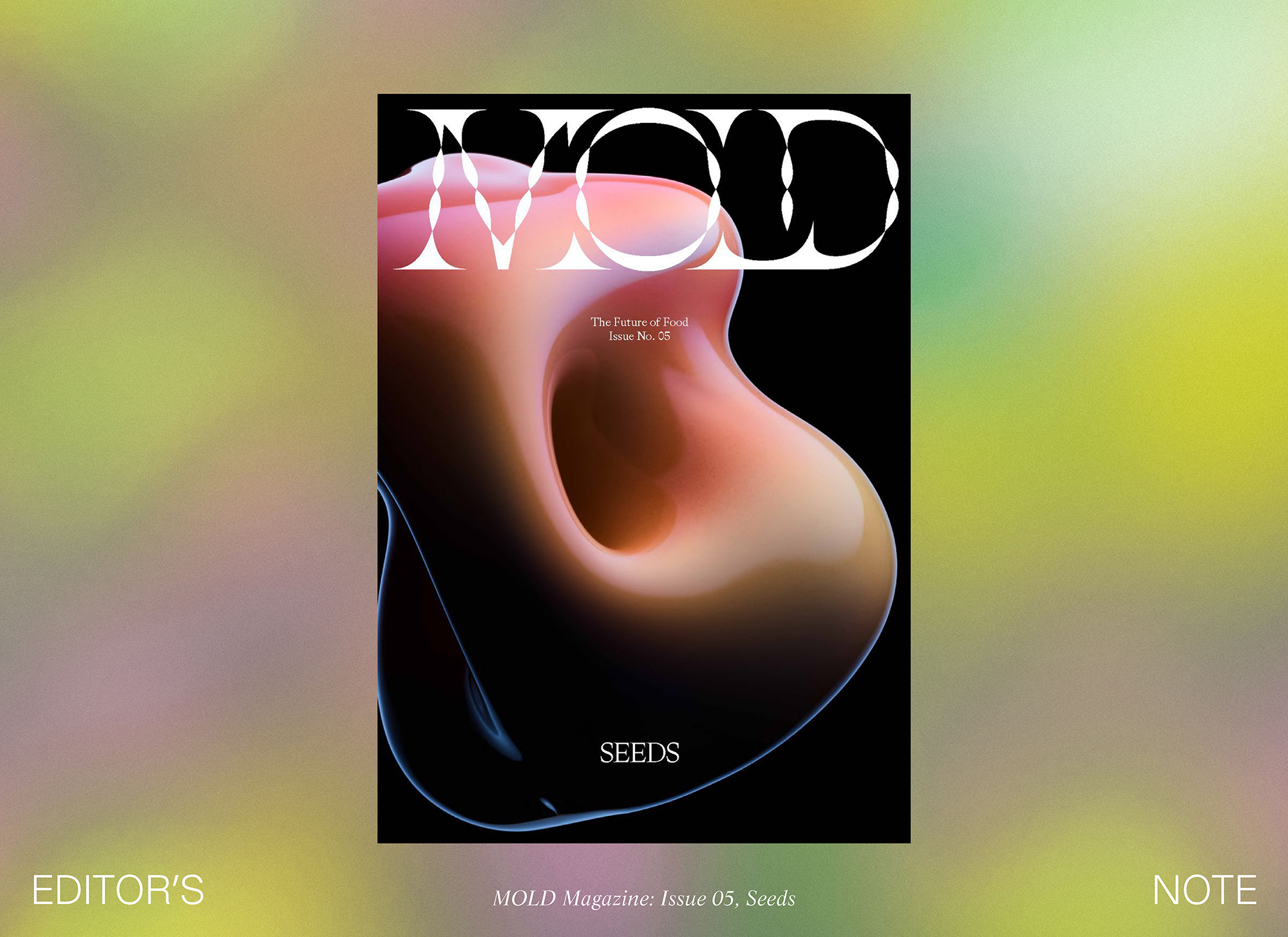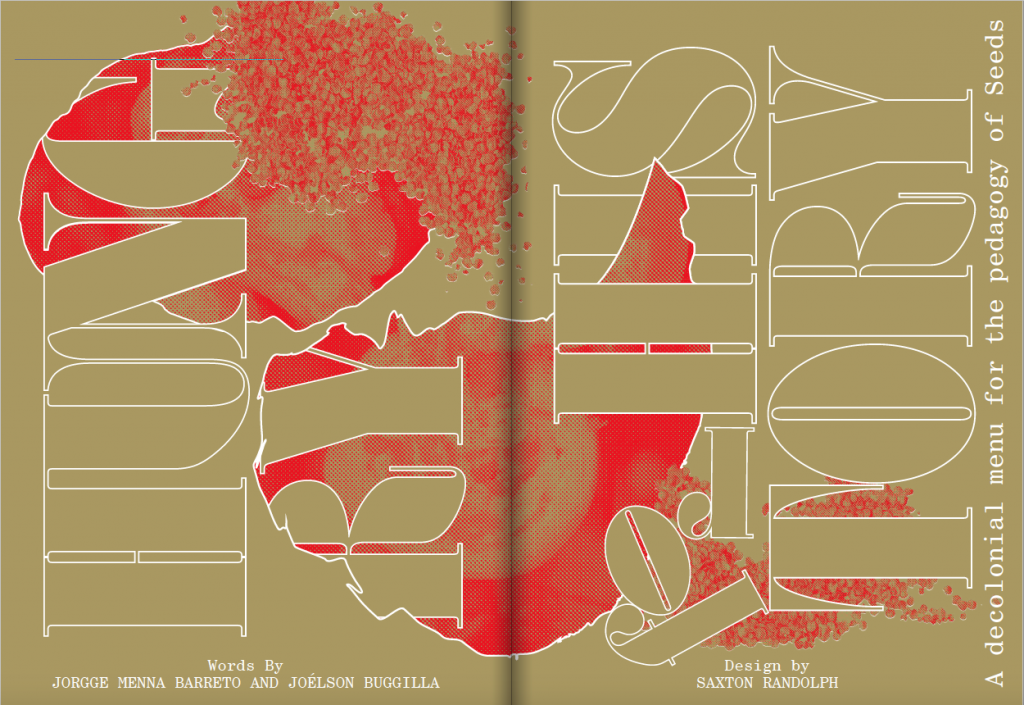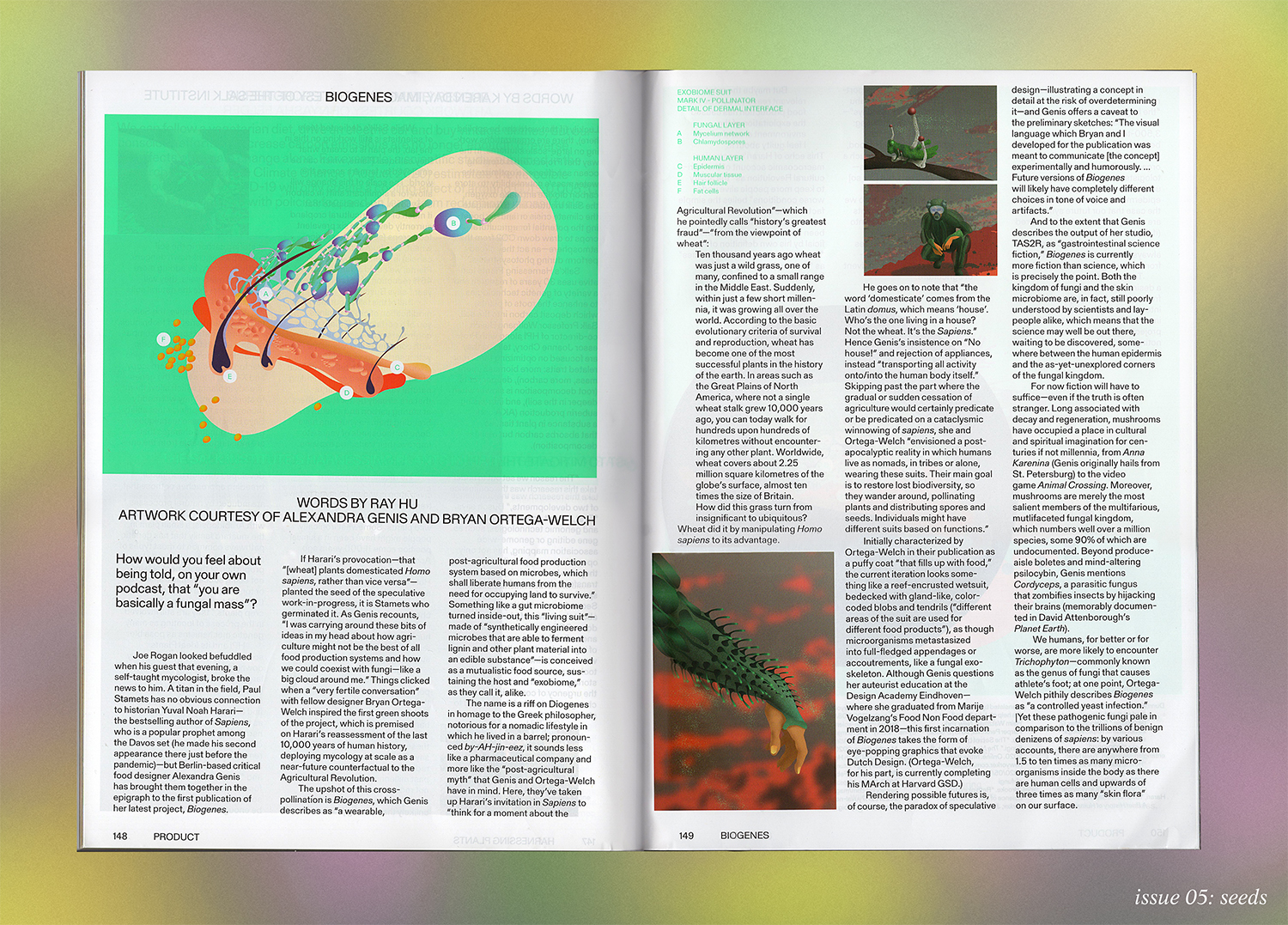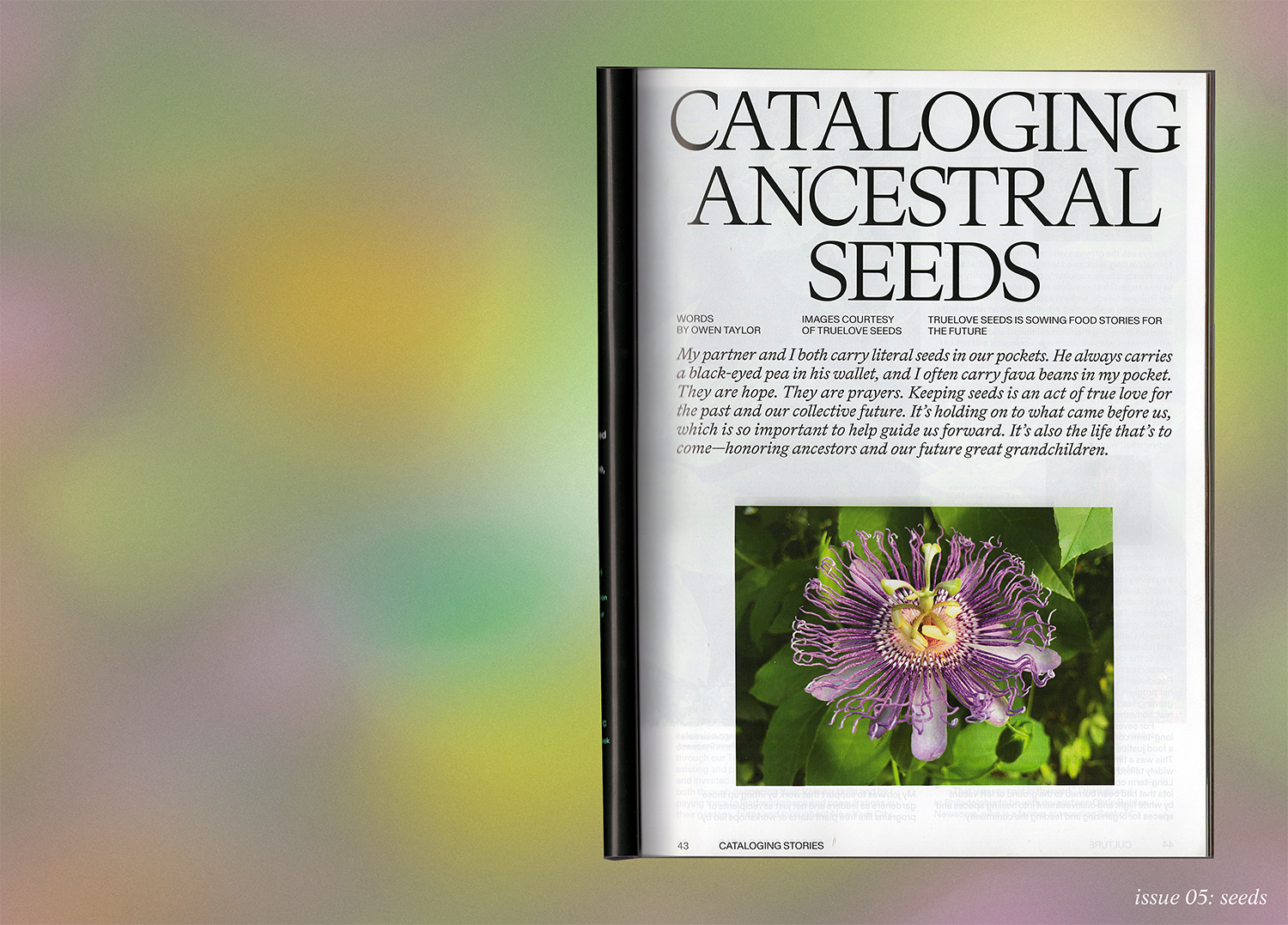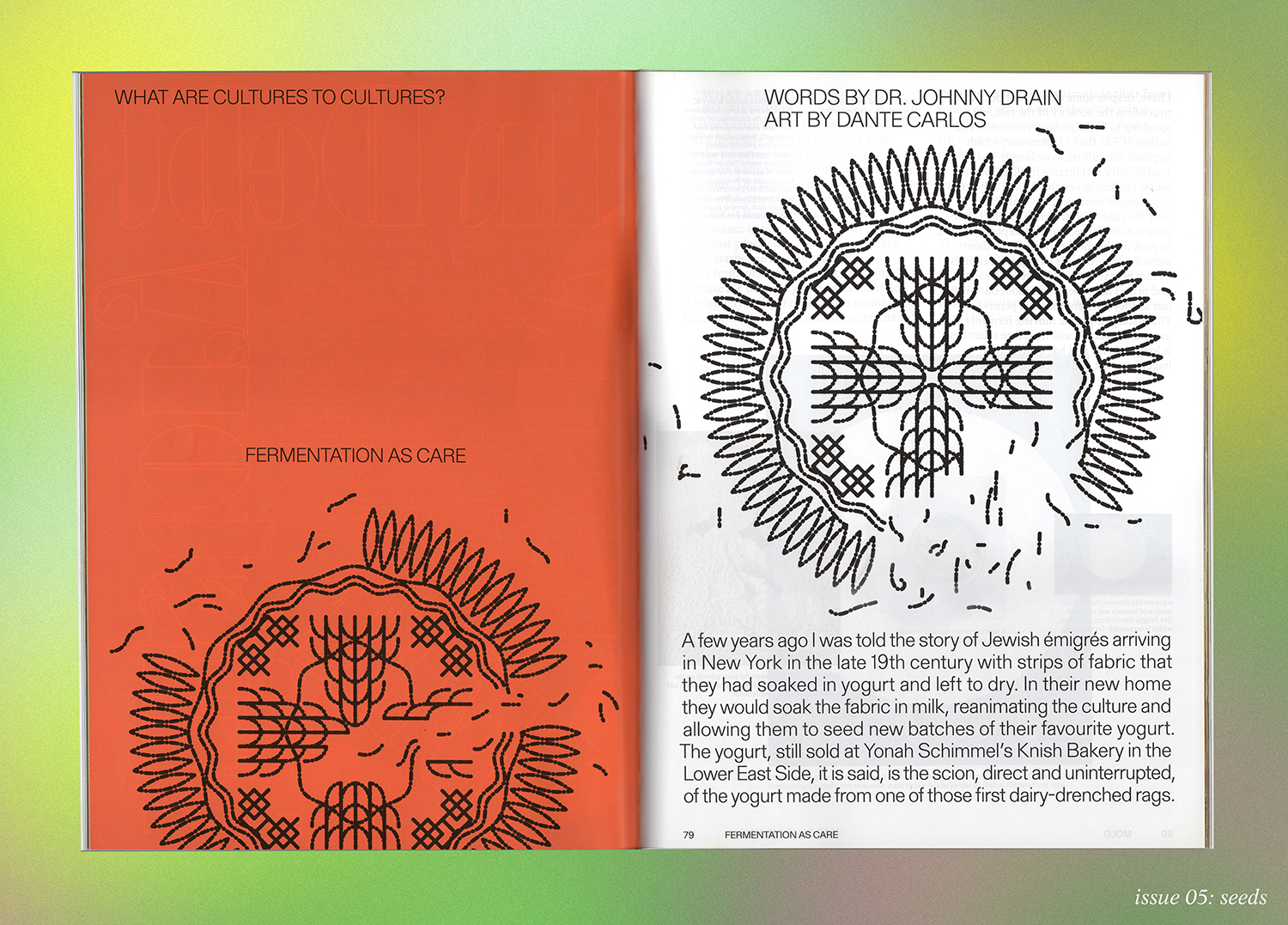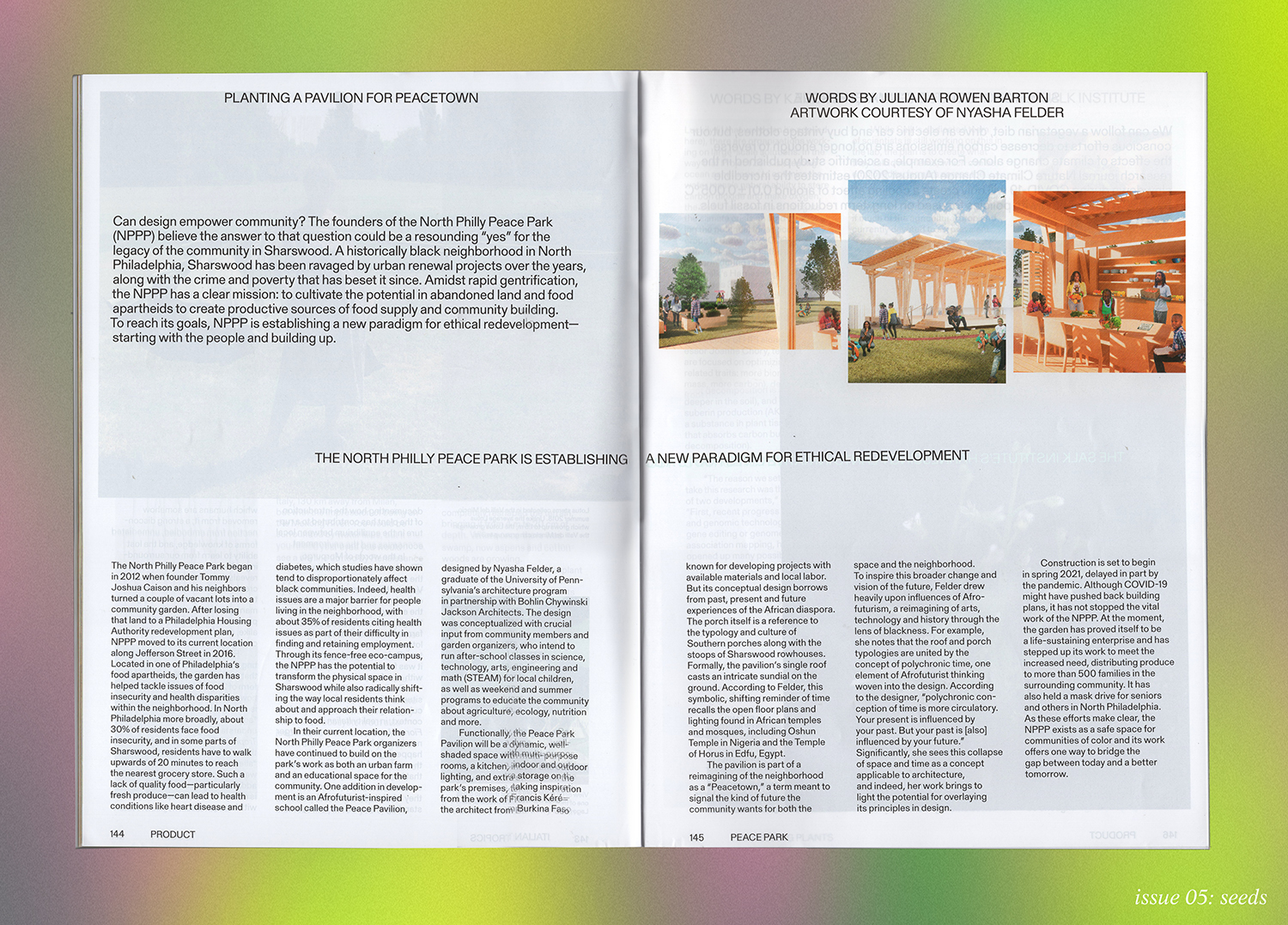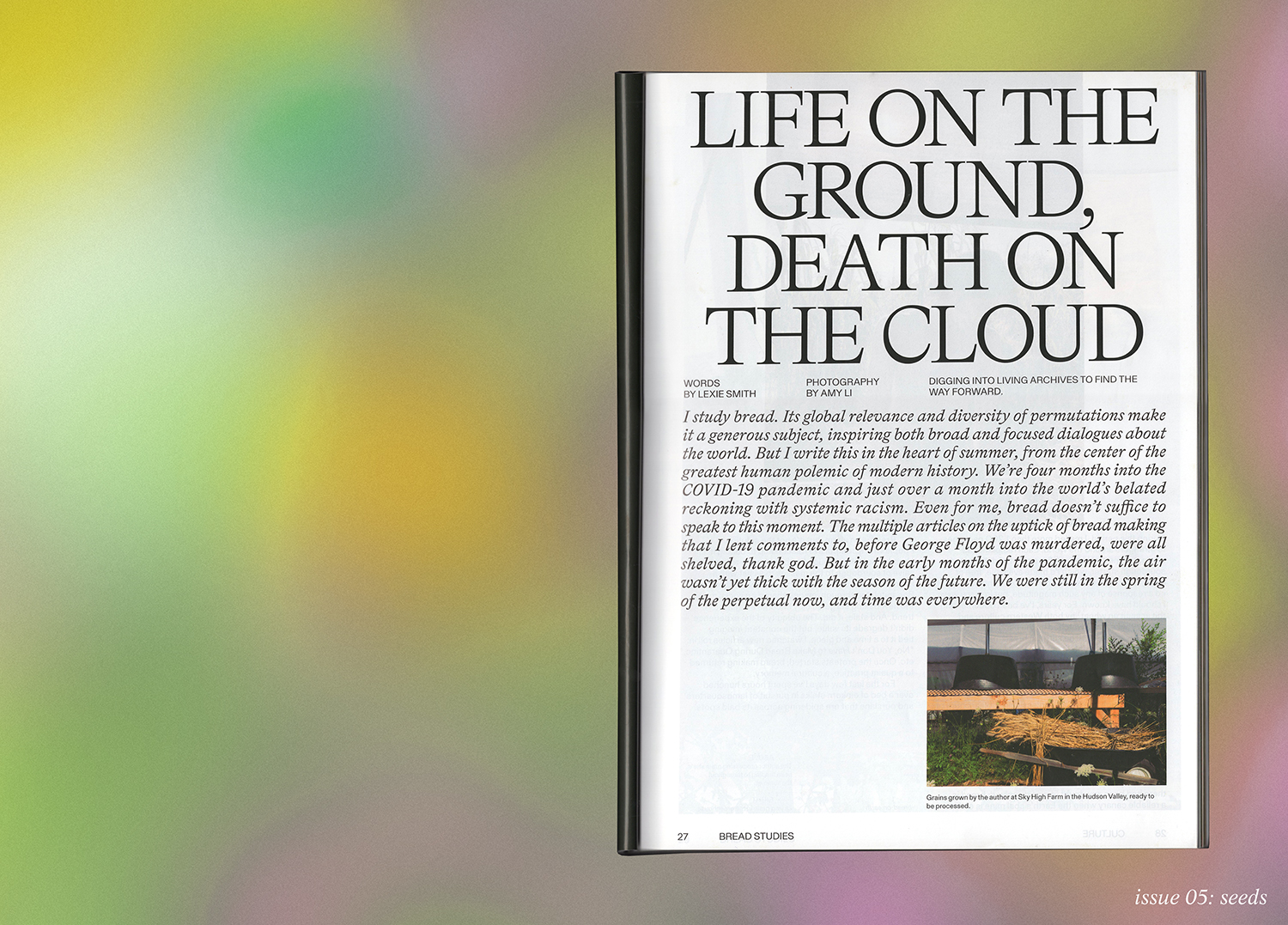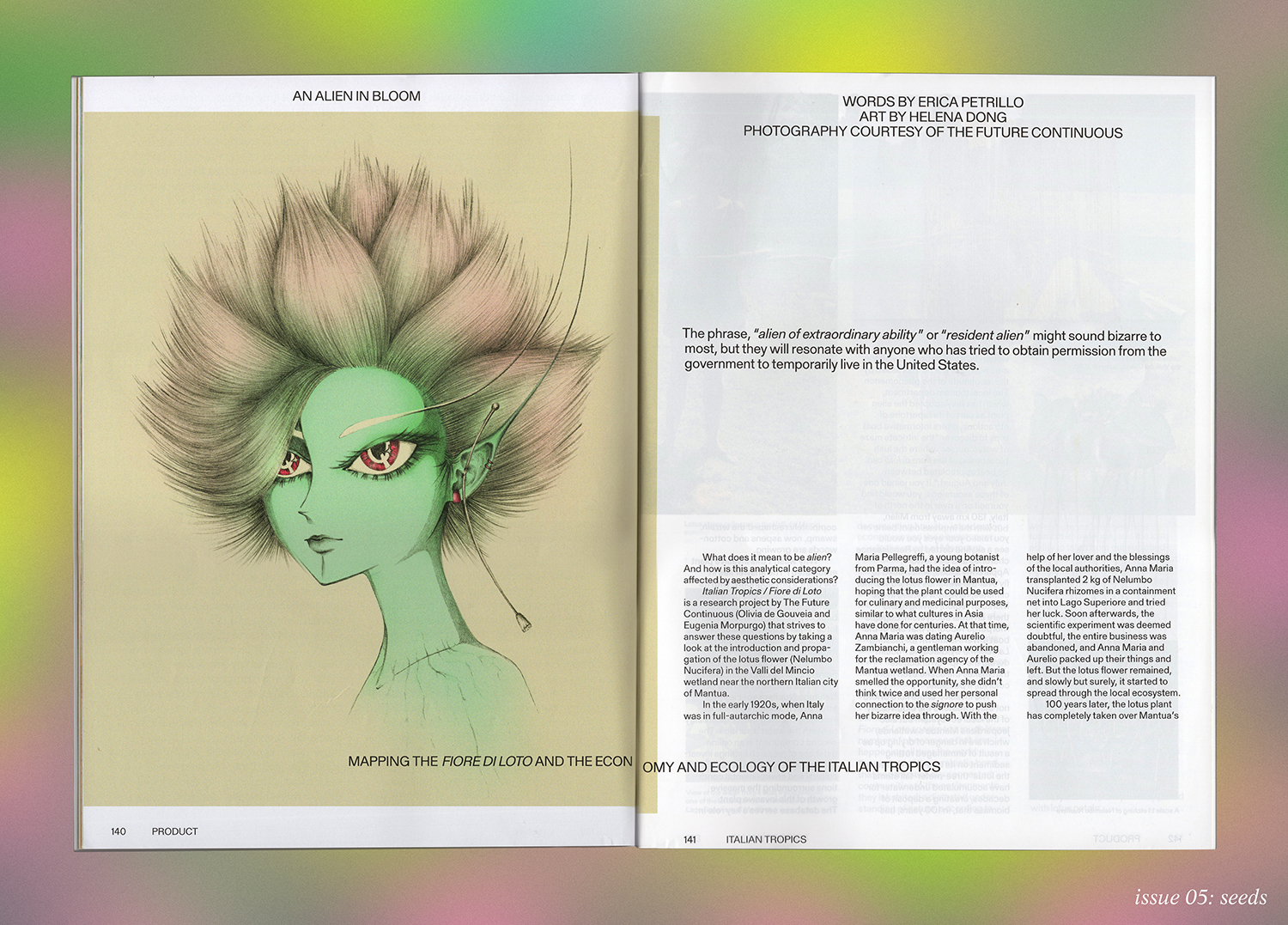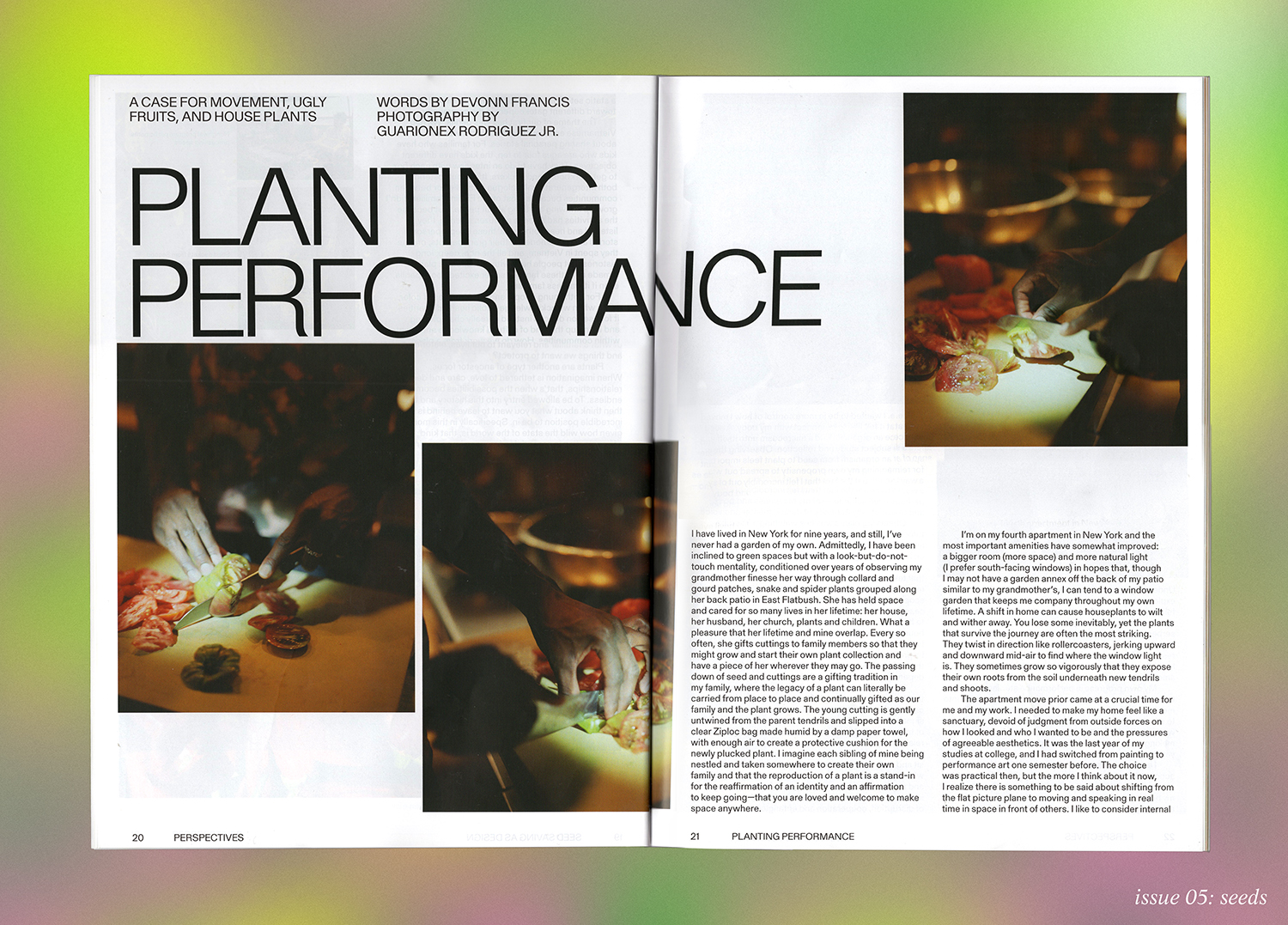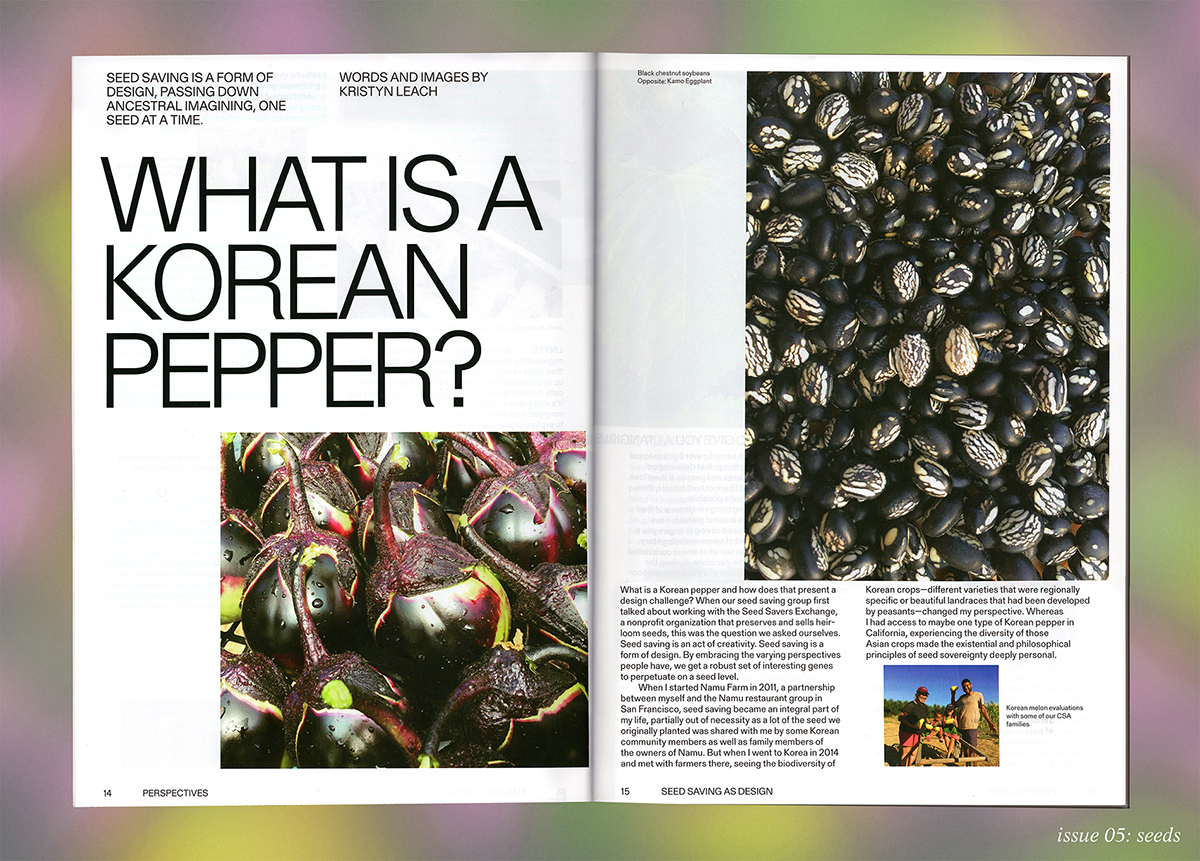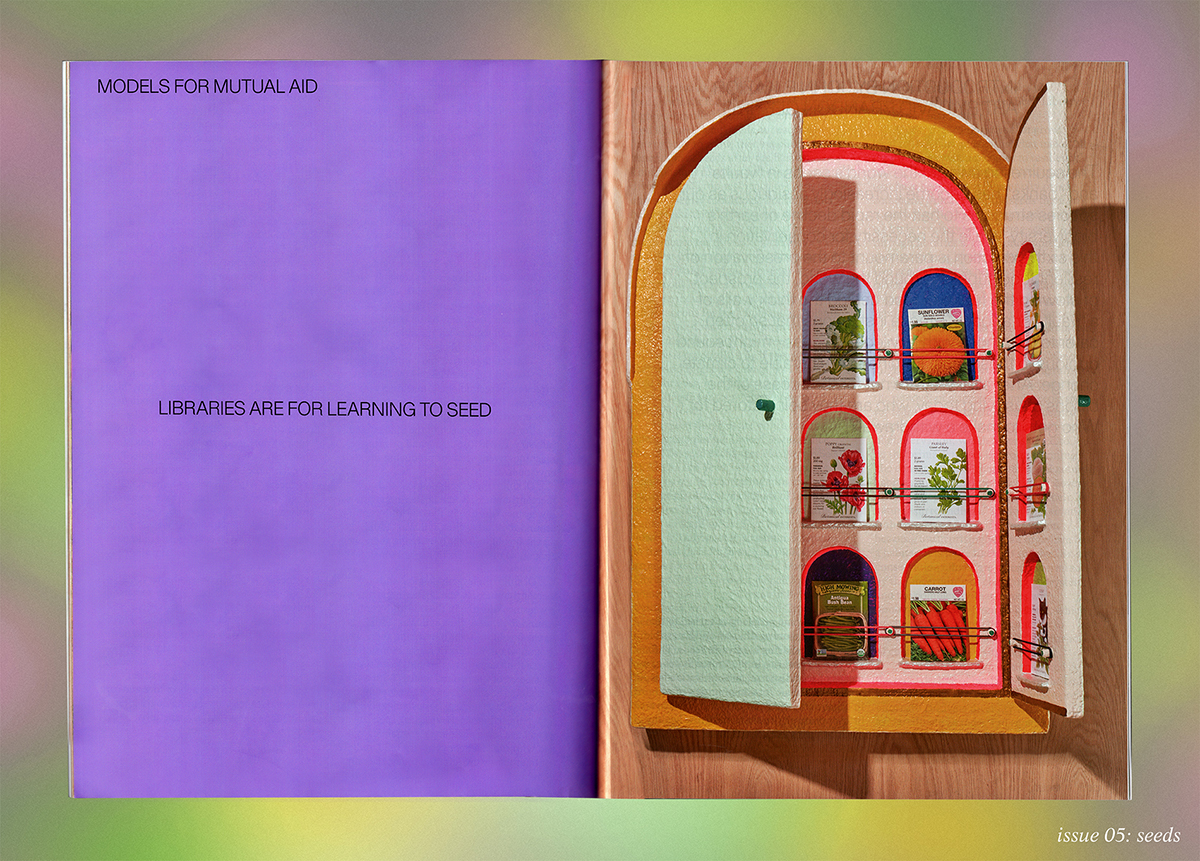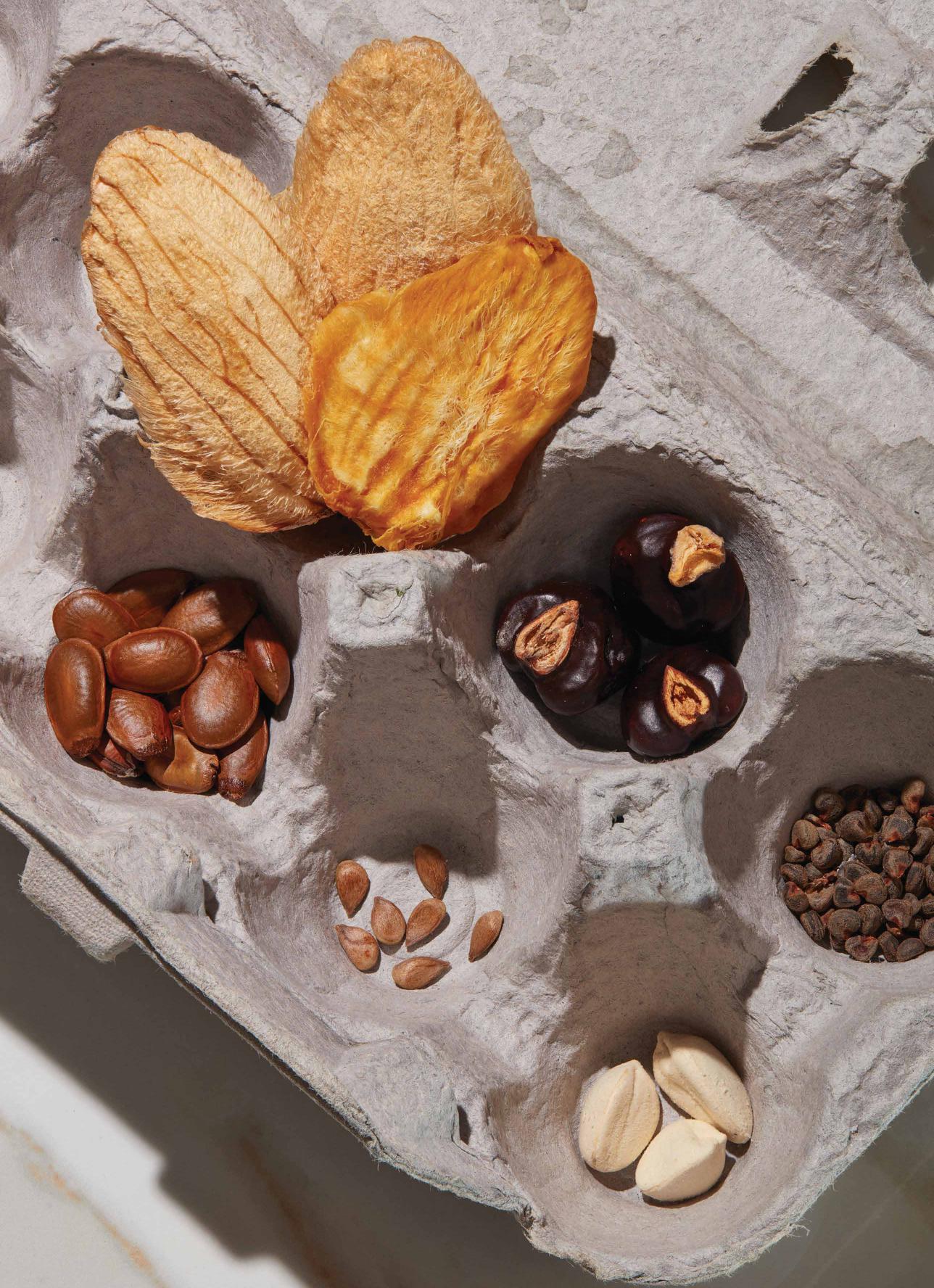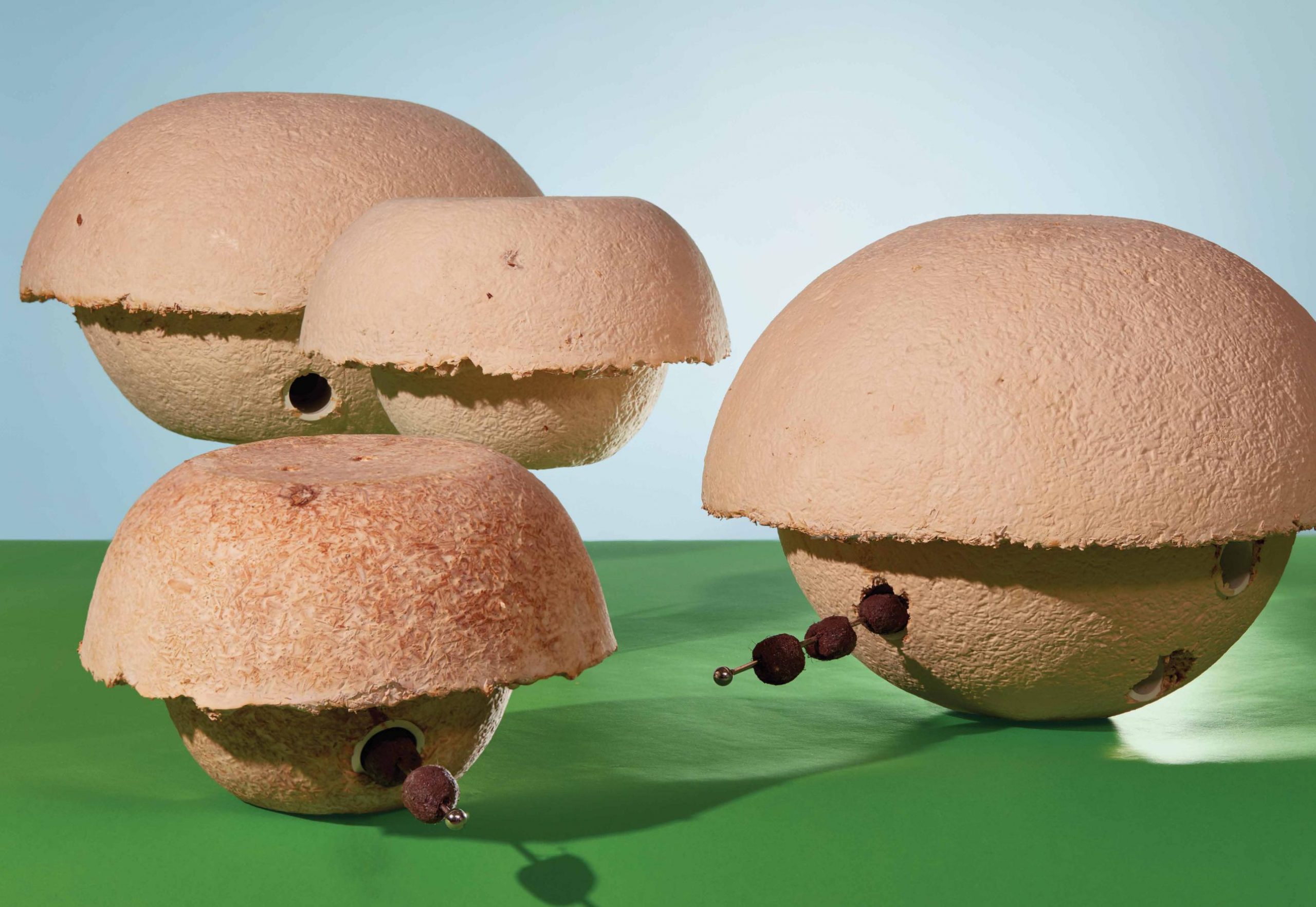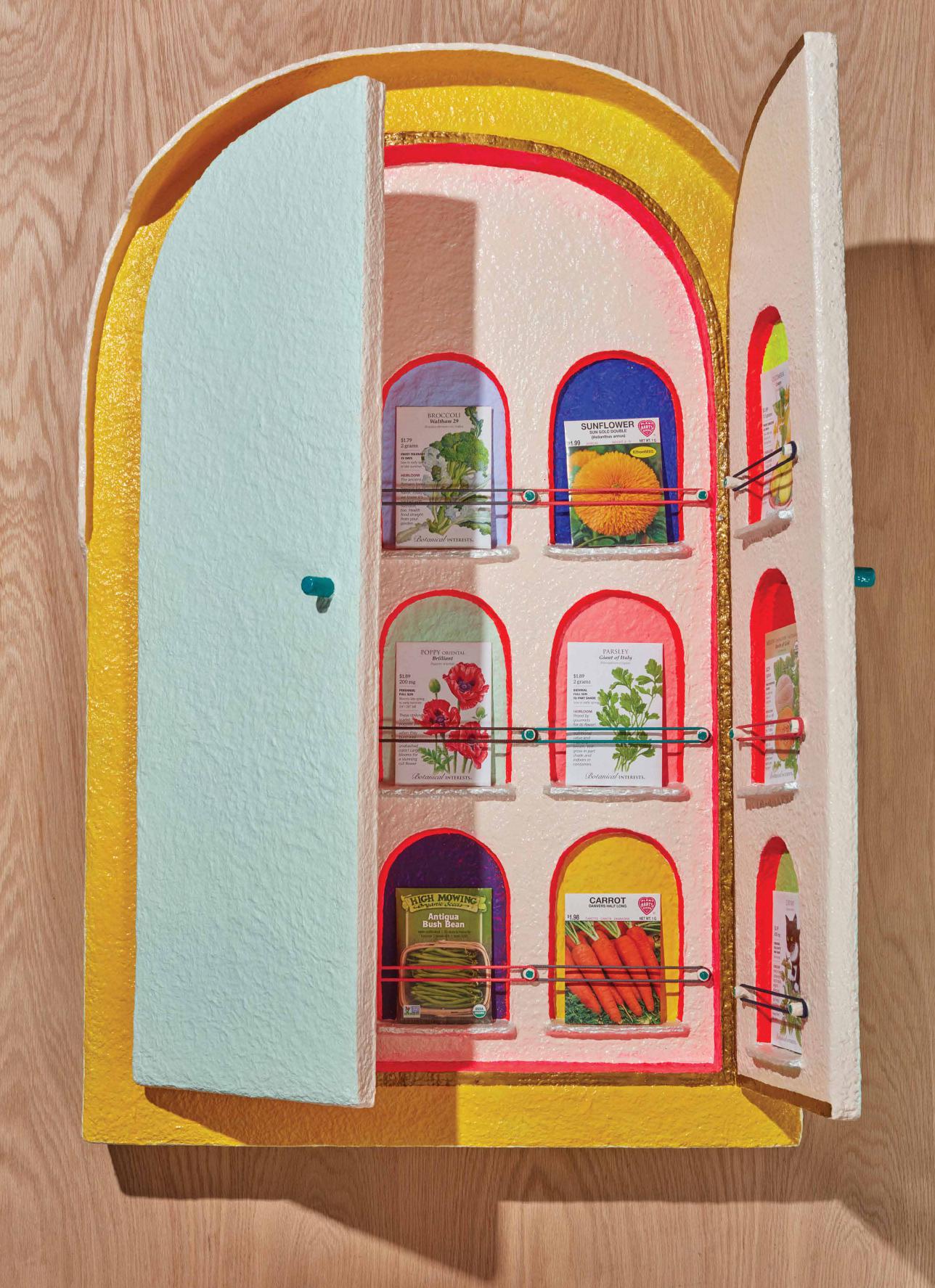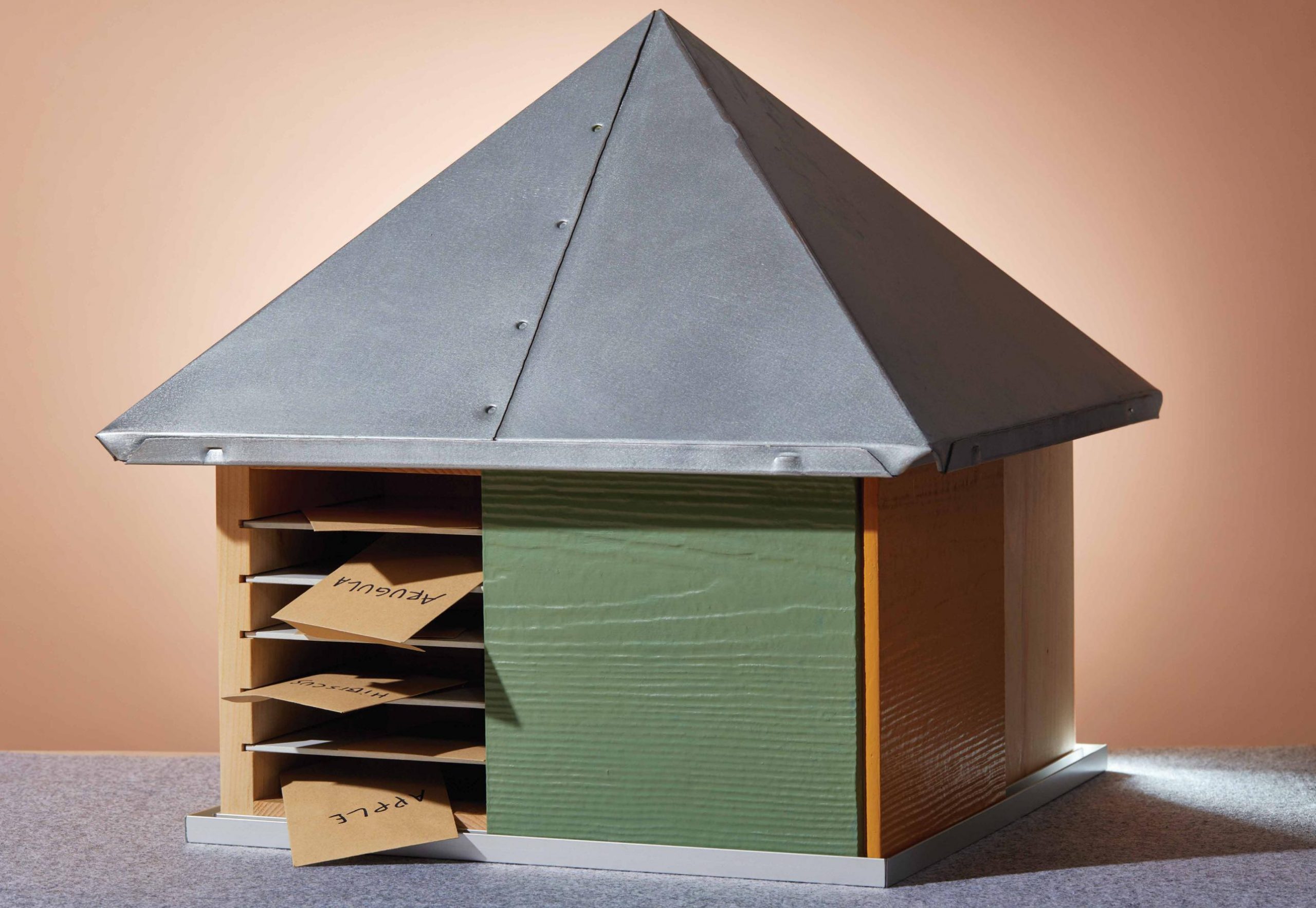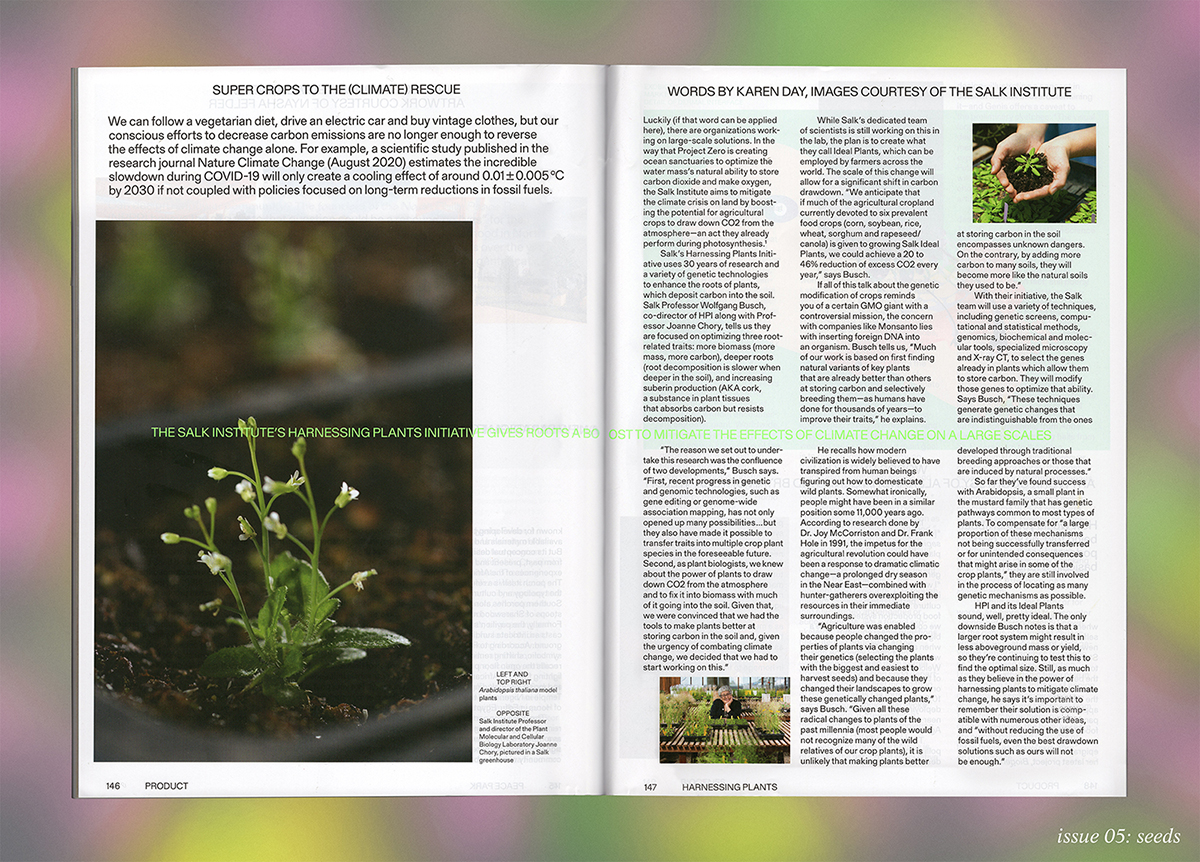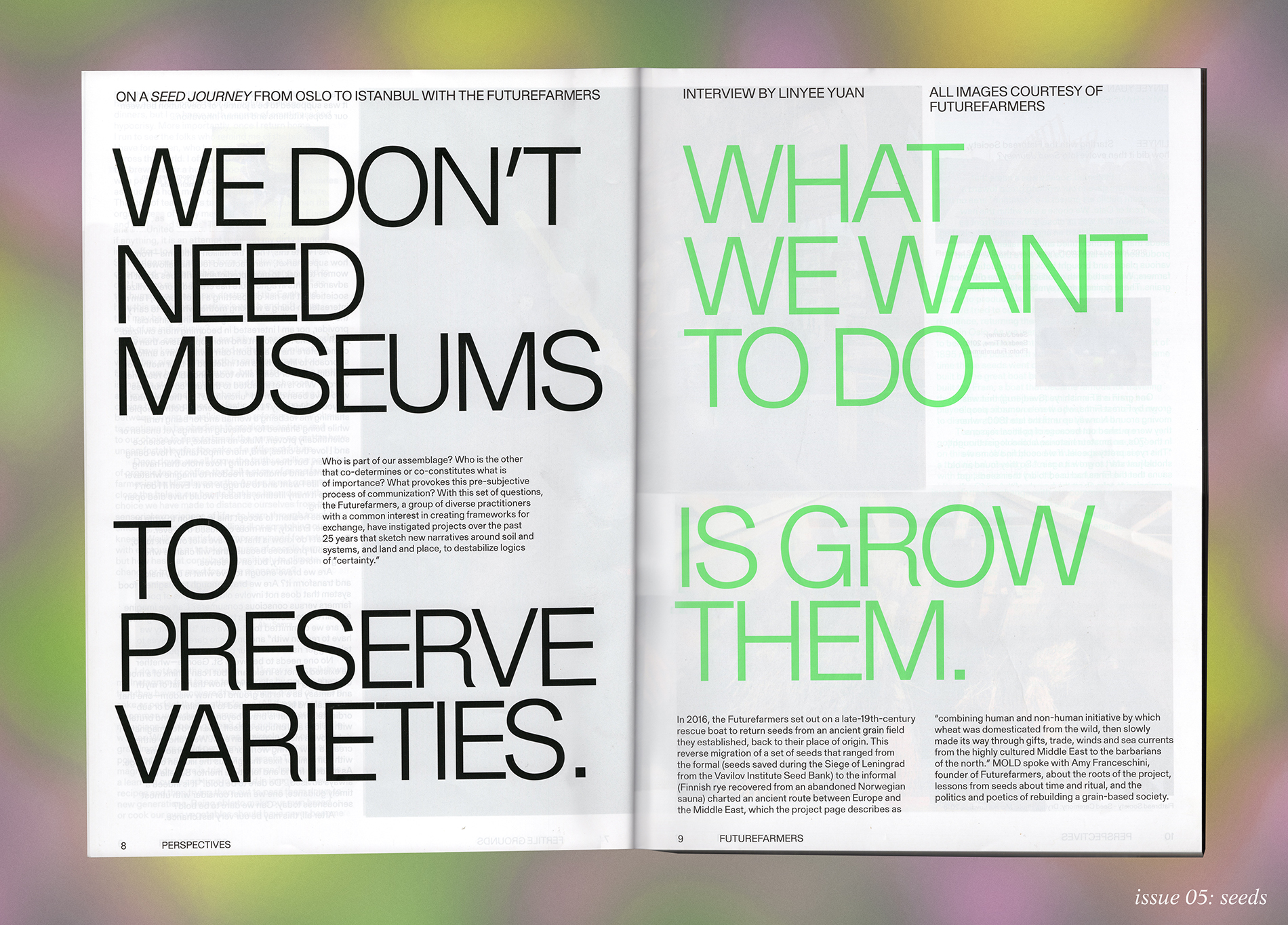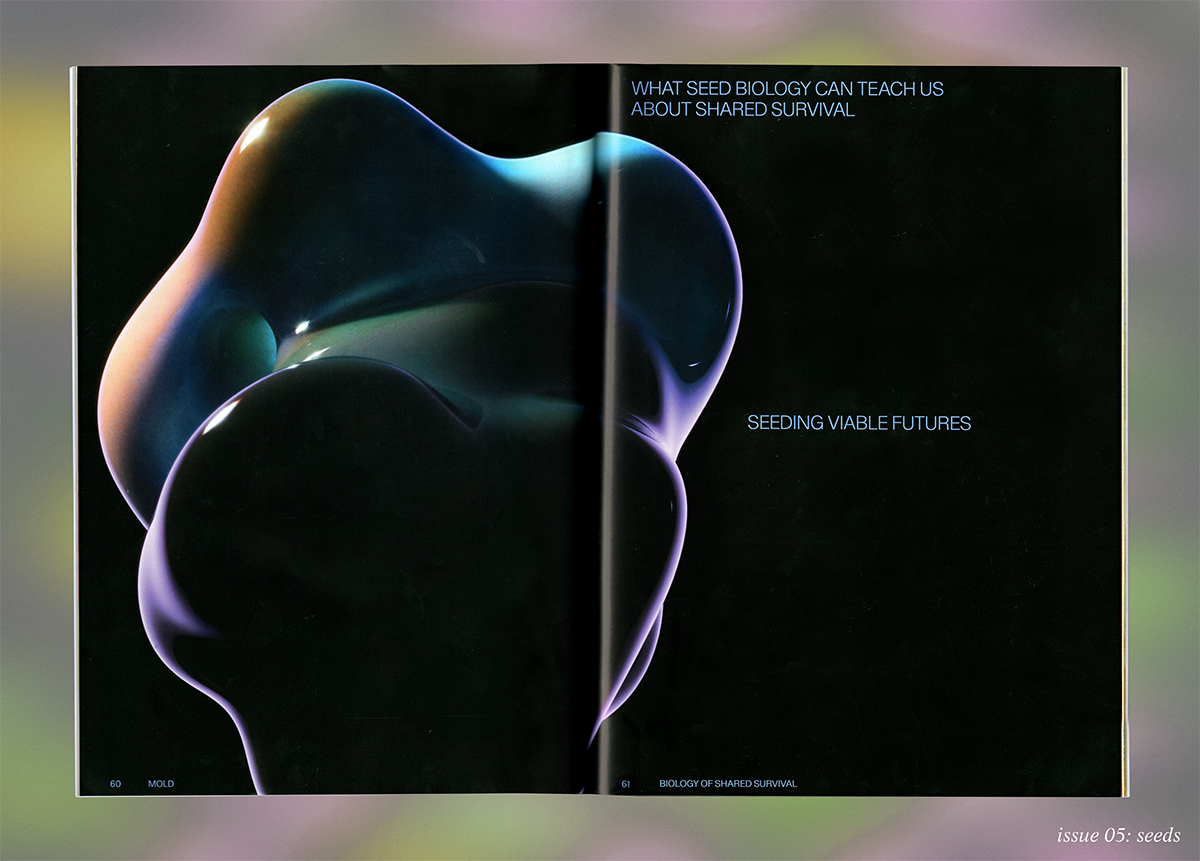Pre-order your copy of SEEDS, MOLD Magazine Issue 05 here for a pre-order price of $18. Cover photography by Studio Romain Lenancker for MOLD Magazine. Expected ship date is March 22.
The precarity of 2020 feels like a referendum on our collective futures. In a moment of deep spiritual, ecological and political crisis, where the immutability of truth has been slowly and deliberately eroded by demagogues, a pandemic is disproportionately ravaging BIPOC and migrant communities, and a global uprising is fomenting on our streets against oppressive systems of colonialism and white supremacy, I am calmed by the words of the writer Arundhati Roy who reminded us that this moment “is a portal, a gateway between one world and the next.”
When we first conceived of the theme of this issue, SEEDS, in 2018, no one could have predicted that its creation would be accompanied by this past year’s rush of pandemic-inspired interest in planting seeds of one’s own. In times of uncertainty our ancestors have also turned to seeds—stowing them away with the hope of seeking out new, more fertile ground. A seed is an ark of intelligence that contains all the information and resources it needs to flourish. This issue honors the seed keepers of the past and the present, and their seeds.
Starting from the question, “what can seed intelligence teach us?”, in this issue we consider how we might design future food systems built on practices of care and nourishment embodied by the adaptive flourishing of seeds. The author, philosopher and activist Vandana Shiva advocates for a new paradigm for living, finding freedom by acknowledging that we are all part of a web of life. Dr. Suzanne Pierre considers the biological potential embedded in each seed and how, despite popular ideas around Darwinism, evolution is actually about shared survival. In thinking about shared survival, Dr. Johnny Drain investigates the ways migrants throughout history have carried ferments with them as a connection to home as they face unknown circumstances—as generation after generation care for these microbial stowaways, the ferments care for them. This generational legacy is what inspires today’s seedkeepers: Vivien Sansour in Palestine, Kristyn Leach in Northern California, Owen Taylor in Philadelphia share lessons from their seed ancestors. Their work and dedication is the inspiration for this issue’s commission for seed libraries: we asked a few of our favorite New York designers and chefs to create seed libraries inspired by the Little Free Library movement and networks of mutual aid that have coalesced in the wake of COVID-19.
As we pass through the portal, we must consider the seeds we save for the next generation. What are the ideas, projects and paradigms to be nurtured until they find the fertile soil and conditions needed to take root and grow? It is not lost on us that MOLD is in full bloom, nearly completing its intended life cycle of six print issues. This is the penultimate issue, number five, and reflecting on the three short years since we released Issue 01, we are proud to see that our ideas have found fertile ground of their own and that conversations around food and its future have evolved to inhabit greater urgency in the public imagination. As we complete our print magazine project (don’t worry, we’ll always be online at thisismold.com) we recognize there’s a bit of growing left to do and there are still seeds to disperse; our final print issue will be on designs for multispecies futures.
With hope and the power of collaborative imagination,
LinYee and Johnny
